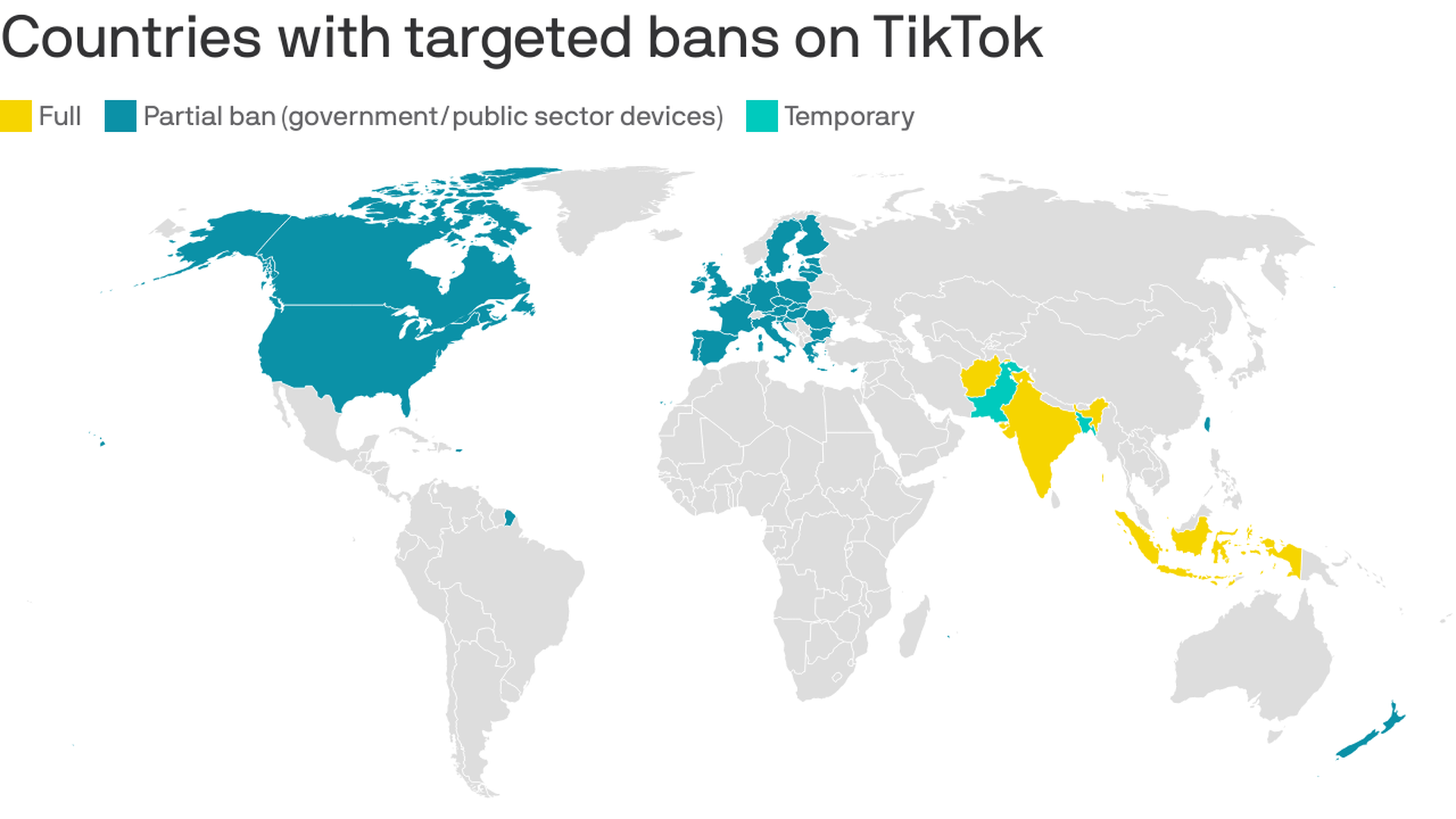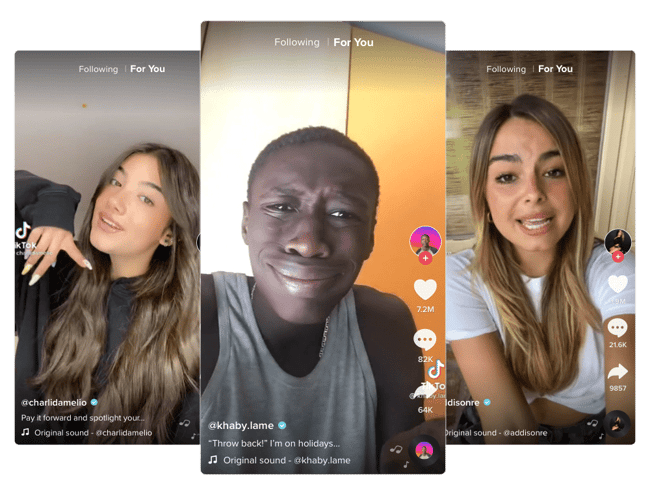What's Going on With TikTok?
Table Of Contents
Is TikTok Really on the Chopping Block?
In the realm of digital entertainment, few apps have woven themselves into the cultural fabric as swiftly and indelibly as TikTok. With its mixture of dance routines, comedic vignettes, and innovative content, TikTok has not just captured the imagination of over a billion users—it has redefined social media engagement.
Yet, beneath the surface of viral challenges and trendsetting, significant security concerns loom large, propelling governments, especially in the U.S., to consider stringent measures. Could this be the end of TikTok’s unfettered access in America?
In this article, Hollywood Branded dives into the escalating tensions between TikTok and lawmakers, exploring the security fears and potential consequences for millions of users.

Security Concerns Spark Potential Ban
PC: Tolga Akmen/AFP/Getty Images
Scroll through your For You Page for a second – dance challenges, hilarious skits, and endless recipe hacks. TikTok, the short-form video platform, has exploded in popularity, becoming a social media giant that boasts over 1B monthly active users. But behind the catchy tunes and viral trends, a storm is brewing. Security concerns linked to TikTok's Chinese ownership have governments around the world, particularly in the US, scrambling to take action. Could a ban be on the horizon for the app billions have come to love? I'll delve into the escalating tensions between TikTok and lawmakers, dissect the security fears, and explore the potential consequences for creators and users everywhere.
Security Fears Take Center Stage
Lawmakers are deeply concerned that TikTok could be a conduit for sensitive user data, including locations, to fall into the hands of the Chinese government. These anxieties stem from Chinese laws that authorize data collection from companies for intelligence purposes. Furthermore, there are worries that TikTok's content recommendation algorithms could be manipulated to spread misinformation. This concern gained traction in the US during the Israel-Hamas conflict, with critics accusing the platform of promoting pro-Palestinian content and fueling antisemitic sentiment. TikTok has vehemently denied these allegations and strived to distance itself from ByteDance.
A Global Trend or A Looming US Threat?

PC: Rahul Mukherjee/Axios
While a nationwide ban in the US hasn't materialized yet, several states and cities have barred TikTok from government devices. India took a more aggressive stance, completely banning the app in mid-2020. In the US, the Biden administration is pressuring ByteDance to sell TikTok, with a potential ban on the horizon if a sale doesn't occur. This push follows years of confidential talks between TikTok and the Committee on Foreign Investment in the United States (CFIUS), a government review panel focused on national security concerns related to foreign investments.
Can the Government Silence an App?

PC: Tribe
Banning an app like TikTok, which empowers users to express themselves and share their creativity, could face legal roadblocks due to First Amendment protections. Courts have already thwarted previous attempts to ban the app. Experts suggest that justifying a ban would be a significant hurdle for the government to overcome.
The Legislative Landscape Heats Up
The legislative landscape surrounding TikTok in the U.S. is heating up, with the House recently passing the Protecting Americans from Foreign Adversary Controlled Applications Act, mandating ByteDance to divest its U.S. TikTok operations within six months or face a ban. Now pending Senate review, the bill has stirred substantial debate over constitutional concerns and the impact on free speech, with Senate Commerce Chair Maria Cantwell planning further hearings.
Amidst this, President Joe Biden has signaled support for the divestment approach. TikTok, defending its platform, argues that the bill infringes on free speech and would negatively affect numerous U.S. businesses that rely on it, maintaining that U.S. user data is securely managed and not shared with the Chinese government. As the Senate deliberates, the outcome will significantly influence the future of TikTok in the U.S., balancing national security interests with free expression rights.
Compromise or Cancellation?
The fate of TikTok hangs in the balance. The company is fiercely defending itself, labeling the bans "political theater" and actively lobbying for a deal with the US government. Their proposed solution, a 90-page plan submitted in 2022, outlines how they intend to operate in the US while addressing national security concerns. However, the situation is further complicated by a Justice Department investigation into TikTok's alleged surveillance of American journalists.
Adding another layer of intrigue, President Biden himself made a surprise debut on TikTok during the Super Bowl in January 2024. This seemingly lighthearted move might be a calculated attempt to reconnect with younger voters, a demographic heavily invested in the platform. His campaign has since continued to share content on TikTok.
A Cliffhanger for TikTok Users
Only time will tell how this saga unfolds. Will TikTok and the US government reach a compromise, or will a ban become a reality? One thing is certain: the coming months will be crucial in determining the future of this wildly popular app and its millions of users worldwide.
Eager To Learn More?
Intrigued by the intersection of digital culture and marketing trends? Dive deeper with our curated selection of articles on digital marketing, social media, and influencer strategies.
- The Rise of Virtual Influencers
- 6 Of The Highest Earning Social Media Influencers
- How TikTok Is Changing Celebrity Endorsements
- The Power of Instagram Stories for Brands
- Why Brands Should Consider Snapchat in Their Next Campaign
Want to stay in the know about all things pop culture? Look no further than our Hot in Hollywood newsletter! Each week, we compile a list of the most talked-about moments in the entertainment industry, all for you to enjoy!







